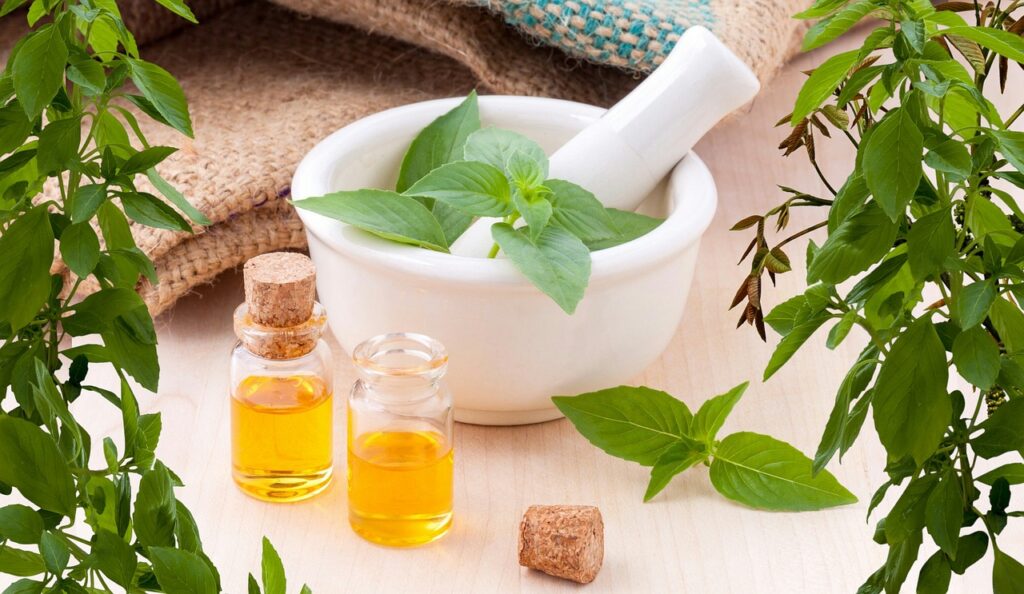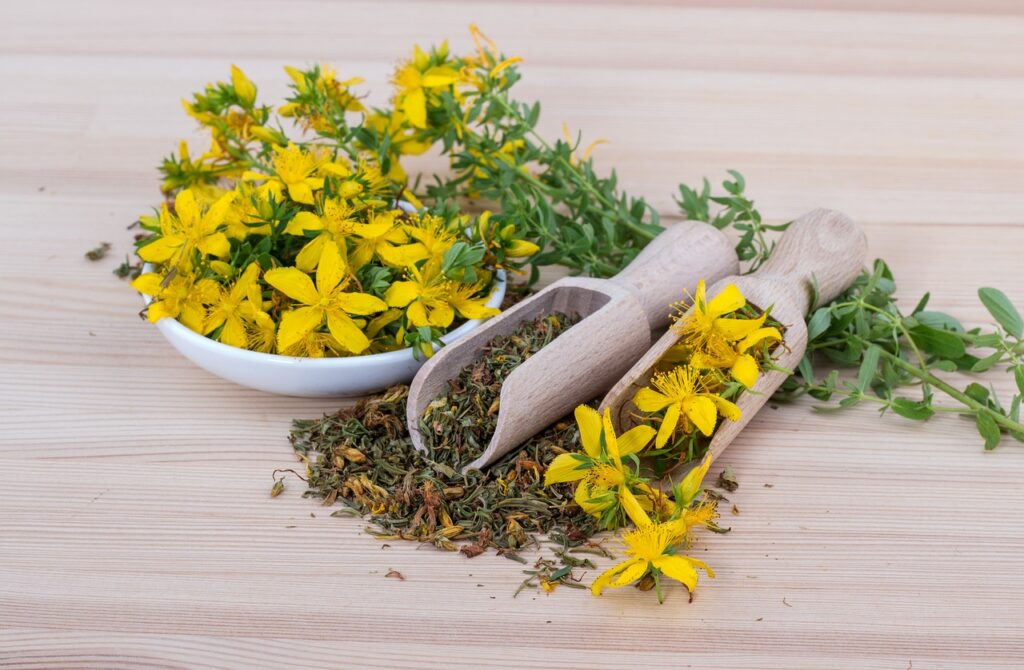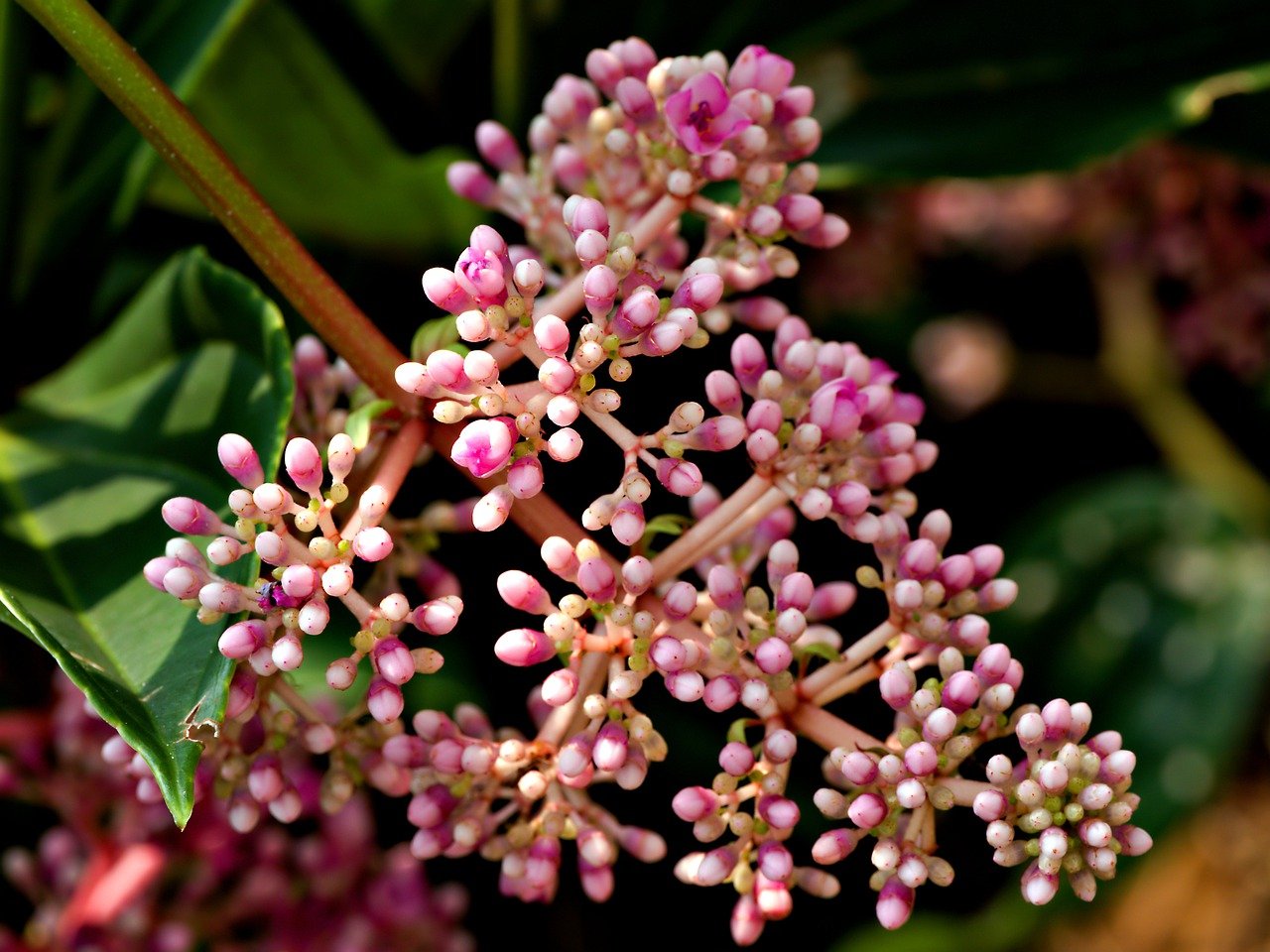H1-Introduction of Ayurvedic Herbalism
In today’s fast-paced world, many people are turning to ancient remedies and holistic approaches to improve their overall well-being. One such time-tested system is Ayurveda, a traditional Indian medicine that has been practiced for thousands of years. Ayurvedic herbalism offers a treasure trove of natural remedies that can unlock the power of healing within you. In this article, we will explore the principles of Ayurveda, delve into the benefits of herbal remedies, and discover how you can incorporate Ayurvedic practices into your daily life.
H2-Understanding Ayurveda Herbalism: An Overview
1.1 The Origins of Ayurveda
Ayurveda, meaning “the science of life,” originated in ancient India over 5,000 years ago. It is a holistic approach to well-being that emphasizes the balance between mind, body, and spirit. Ayurveda views each person as a unique individual with specific needs and aims to restore harmony and promote good health through various techniques, including herbalism.
1.2 The Three Doshas: Vata, Pitta, and Kapha
According to Ayurveda, the three doshas—Vata, Pitta, and Kapha—are the fundamental energies that govern our physical and mental processes. Each person has a unique combination of these doshas, which determine their constitution and susceptibility to imbalances. Understanding your dosha profile is essential for creating a personalized approach to health and well-being.
1.3 Balancing the Doshas for Optimal Health
The key to Ayurvedic healing lies in achieving and maintaining a harmonious balance of the doshas. When the doshas are in equilibrium, the body functions optimally, and disease is less likely to occur. Ayurveda offers a range of practices, including herbal remedies, lifestyle modifications, and dietary guidelines, to restore balance and promote overall wellness.

H3-The Healing Power of Ayurvedic Herbalism
2.1 Ayurvedic Principles of Herbalism
In Ayurveda, herbalism is considered a cornerstone of healing. Ayurvedic herbs are carefully selected and combined to address specific health concerns and restore balance to the doshas. These herbs possess unique properties that support various bodily systems, such as the digestive, immune, and nervous systems. The holistic approach of Ayurvedic herbalism aims to not only alleviate symptoms but also target the root cause of the imbalance.
2.2 Popular Ayurvedic Herbs and Their Benefits
Ayurveda boasts a rich pharmacopoeia of herbs that have been used for centuries to promote health and well-being. Some popular Ayurvedic herbs include Ashwagandha, Turmeric, Brahmi, Triphala, and Tulsi. Ashwagandha, known as an adaptogenic herb, helps combat stress and supports adrenal health. Turmeric, with its potent anti-inflammatory properties, aids in reducing inflammation and improving digestion. Brahmi is known for its cognitive-enhancing effects, enhancing memory and mental clarity. Triphala, a blend of three fruits, supports digestive health and detoxification. Tulsi, also known as Holy Basil, helps boost immunity and reduces the effects of stress.
2.3 Preparing and Using Herbal Remedies
Ayurvedic herbal remedies can be prepared in various forms, including teas, powders, capsules, and oils. The preparation method and dosage depend on the individual’s dosha, the desired outcome, and the specific herb being used. Ayurvedic practitioners consider factors such as taste, potency, and energetic qualities when formulating personalized herbal remedies. It is essential to consult with an experienced Ayurvedic practitioner or herbalist to ensure proper usage and maximize the benefits of these remedies.
3 Ayurvedic Rituals for Daily Well-being
3.1 Morning Routine: Starting the Day with Intention
Ayurveda emphasizes the importance of a mindful morning routine to set the tone for the rest of the day. Practices such as tongue scraping, oil pulling, and dry brushing help cleanse the body of toxins, improve oral hygiene, and stimulate the lymphatic system. Starting the day with a nourishing breakfast and incorporating gentle stretching or yoga poses can further enhance your overall well-being.
3.2 Dietary Guidelines: Nourishing Your Body and Mind
Ayurvedic dietary guidelines focus on choosing foods that support your dosha and provide optimal nutrition. Emphasizing fresh, whole foods, and favoring seasonal and locally sourced ingredients can help maintain balance. Ayurveda recognizes six tastes—sweet, sour, salty, bitter, pungent, and astringent—and advises including all six tastes in each meal to satisfy cravings and ensure a well-rounded diet.
3.3 Yoga and Meditation: Cultivating Mindfulness and Inner Harmony with Ayurveda Herbalism
Yoga and meditation play a significant role in Ayurveda, promoting physical strength, flexibility, and mental clarity. Practicing yoga asanas (postures) and pranayama (breathing exercises) can help balance the doshas, improve circulation, and calm the mind. Meditation, whether through mindfulness or mantra repetition, allows for self-reflection and promotes a sense of inner peace and harmony.
4 Ayurveda Herbalism Remedies for Common Ailments
4.1 Digestive Disorders: Soothing the Gut Naturally with Ayurveda Herbalism
Ayurveda recognizes the importance of a robust digestive system for overall well-being. To address common digestive disorders such as indigestion, bloating, and constipation, Ayurvedic remedies focus on restoring the digestive fire (agni), improving gut health, and promoting healthy elimination. Herbal blends like Trikatu, Hingvastak, and Avipattikar churna are often used to support digestive function and alleviate discomfort.
4.2 Stress and Anxiety:
Finding Serenity in Ayurveda Stress and anxiety have witnessed a surge in prevalence within the contemporary fast-paced society we live in.t. Ayurveda offers a holistic approach to managing these conditions, combining lifestyle modifications, herbal remedies, and stress-reducing practices. Adaptogenic herbs like Ashwagandha and Brahmi help support the nervous system and reduce the effects of stress. Additionally, incorporating mindfulness techniques, such as pranayama and meditation, can provide a sense of calm and relaxation.
4.3 Skin Care: Unveiling the Radiance of Ayurveda Herbalism
Ayurvedic principles extend to skincare as well, recognizing the intimate connection between skin health and overall well-being. Ayurvedic skincare involves using natural ingredients and herbal formulations tailored to individual dosha types. Ayurvedic herbs like Neem, Turmeric, and Aloe Vera possess properties that nourish the skin, promote a youthful complexion, and address common skin concerns. Regular facial massages, called Abhyanga, with herbal oils can enhance circulation and rejuvenate the skin.
5 Incorporating Ayurveda Herbalism into Modern Life
5.1 Ayurveda Herbalism Practices for a Balanced Lifestyle
Ayurveda encourages a balanced lifestyle that aligns with nature’s rhythms and emphasizes self-care. Following a consistent daily routine, known as dinacharya, can help maintain balance and optimize well-being. This includes waking up and going to bed at regular times, eating meals at set intervals, and incorporating mindful practices throughout the day.
5.2 Ayurveda Herbalism in Daily Cooking
Integrating Ayurvedic herbs and spices into your daily cooking is an excellent way to experience their benefits. Turmeric, ginger, cumin, coriander, and cardamom are commonly used in Ayurvedic recipes for their flavor profiles and medicinal properties. Adding these herbs and spices to your meals can enhance digestion, boost immunity, and infuse your dishes with delicious flavors.
5.3 Ayurveda Herbalism Wellness Retreats and Centers
For those seeking a deeper immersion into Ayurvedic practices, wellness retreats and centers provide an ideal environment for rejuvenation and self-discovery. These retreats offer a range of Ayurvedic therapies, such as Panchakarma (detoxification), Ayurvedic massages, and personalized consultations with experienced practitioners. They provide an opportunity to disconnect from daily stressors and immerse yourself in the healing wisdom of Ayurveda.

H4-Conclusion of Ayurveda Herbalism
Unlocking the power of Ayurvedic herbalism can be a transformative journey towards holistic well-being. By embracing the principles of Ayurveda, incorporating herbal remedies, and adopting mindful practices, you can tap into the natural healing abilities of your body and The transformative effects of Ayurvedic herbalism can extend to your physical well-being, mental clarity, and spiritual harmony, leaving a profound impact on your overall health.
H5-Frequently Asked Questions (FAQs) on Ayurvedic Herbalism
1 What is the best time to take Ayurvedic herbal remedies?
The timing of Ayurvedic herbal remedies depends on the specific herb and its intended effect. Some herbs are best taken in the morning to invigorate and energize, while others are more suitable for the evening to promote relaxation and sleep. It is recommended to consult with an Ayurvedic practitioner or follow the instructions provided on the product packaging for optimal results.
2 Are there any side effects of Ayurvedic herbalism?
When used correctly and under the guidance of a qualified practitioner, Ayurvedic herbalism is generally safe and well-tolerated. However, it is important to note that individual sensitivities and allergies can occur. It is advisable to inform your Ayurvedic practitioner about any pre-existing health conditions or medications you may be taking to ensure compatibility and minimize the risk of any adverse reactions.
3 Can Ayurvedic herbalism practices complement conventional medicine?
Ayurveda offers the opportunity to embrace a complementary approach by seamlessly integrating with conventional medicine for a comprehensive and synergistic approach to healthcare.. It is important to inform your healthcare provider about any Ayurvedic remedies or practices you are incorporating into your routine. They can provide guidance on integrating both systems of medicine for optimal health outcomes.
.4 How long does it take to experience the benefits of Ayurvedic herbalism remedies?
The time it takes to experience the benefits of Ayurvedic remedies can vary depending on various factors, including the individual’s constitution, the nature of the health concern, and the chosen remedy. Some people may notice improvements within a few days or weeks, while others may require a more extended period of consistent use. Patience and commitment to the Ayurvedic approach are key to reaping its long-term benefits.
5 Is Ayurveda suitable for everyone?
Ayurveda is a personalized system of medicine that recognizes the uniqueness of each individual. While Ayurvedic principles can be beneficial for most people, it is important to consider individual variations, including specific health conditions, medications, and personal preferences. Consulting with a qualified Ayurvedic practitioner can help determine the suitability of Ayurveda for your specific needs and tailor recommendations accordingly.
Incorporating the wisdom of Ayurvedic herbalism into your life can be a transformative journey towards holistic well-being. By understanding the principles of Ayurveda, exploring the benefits of herbal remedies, and adopting Ayurvedic practices, you can unlock the power of natural healing and experience profound positive changes in your life. Embrace the richness of Ayurveda and embark on a path towards optimal health and wellness today!

- Here is a list of websites that provide information on Ayurveda herbalism specifically in the United States:
- National Center for Complementary and Integrative Health (NCCIH) – https://www.nccih.nih.gov/
- The NCCIH website provides evidence-based information on Ayurveda, herbal remedies, and other complementary and integrative health practices.
- American Herbalists Guild (AHG) – https://www.americanherbalistsguild.com/
- The AHG is a professional organization that promotes herbalism in the United States. Their website offers resources, articles, and a directory of registered herbalists.
- United States Ayurveda Association (USAA) – https://www.usayurveda.org/
- The USAA is an organization dedicated to promoting Ayurveda in the United States. Their website provides information on Ayurvedic practices, practitioners, and events.
- Ayurvedic Institute – https://www.ayurveda.com/
- The Ayurvedic Institute, based in New Mexico, offers educational programs and resources on Ayurveda, including herbal remedies and treatments.
- American Herbal Pharmacopoeia (AHP) – https://www.herbal-ahp.org/
- The AHP is an organization that develops quality standards for herbal products. Their website provides monographs, research, and educational materials on herbal medicine.
- Herb Society of America (HSA) – https://www.herbsociety.org/
- The HSA is a nonprofit organization that promotes the knowledge and use of herbs. Their website offers educational resources, articles, and a directory of local herb societies.
- American Botanical Council (ABC) – https://abc.herbalgram.org/
- The ABC is a leading independent herbal research and education organization. Their website provides information on herbal medicine, including Ayurvedic herbs.
- American Herbal Products Association (AHPA) – https://www.ahpa.org/
- The AHPA is a trade association that represents the herbal products industry. Their website offers resources, guidelines, and information on herbal quality and safety.
- Natural Medicines – https://naturalmedicines.therapeuticresearch.com/
- Natural Medicines is an online database that provides evidence-based information on herbal medicines, including Ayurvedic herbs. Access to the full database requires a subscription, but they offer some free content as well.
Please note that while these websites provide information on Ayurveda and herbalism, it’s always important to consult with qualified healthcare professionals or Ayurvedic practitioners for personalized advice and guidance.
- Additional Information:
For any information on – Understanding: Colon Broom Reviews, Common Issues & Benefits of Colon Cleansing with 7 Natural Remedies -click here
Mental Health (Gratitude Journal)
Using a gratitude journal has several benefits, including:
Positive Outlook: Focusing on what you’re thankful for can shift your mindset towards positivity.
Stress Reduction: Regularly expressing gratitude has been linked to lower stress levels and improved mental well-being.
Improved Relationships: Acknowledging and appreciating others fosters stronger connections and enhances relationships.
Enhanced Mental Health: Gratitude journaling can contribute to better mental health by promoting a sense of contentment and reducing negative thoughts.
Increased Resilience: Reflecting on positive aspects of life can build resilience, helping individuals cope better with challenges.
Better Sleep: Gratitude practices may improve sleep quality, leading to more restful nights.
Self-Reflection: Keeping a gratitude journal encourages self-reflection, aiding personal growth and self-awareness.
In summary, a gratitude journal is a simple yet powerful tool that can positively impact mental and emotional well-being, relationships, and overall life satisfaction.

